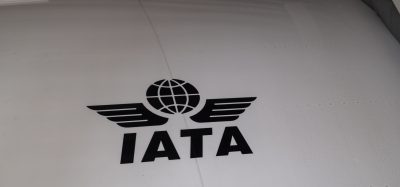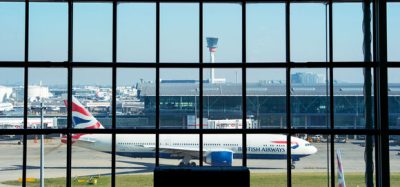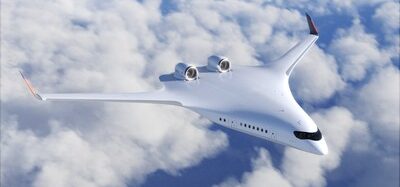Fuelling excellence at HKIA
- Like
- Digg
- Del
- Tumblr
- VKontakte
- Buffer
- Love This
- Odnoklassniki
- Meneame
- Blogger
- Amazon
- Yahoo Mail
- Gmail
- AOL
- Newsvine
- HackerNews
- Evernote
- MySpace
- Mail.ru
- Viadeo
- Line
- Comments
- Yummly
- SMS
- Viber
- Telegram
- Subscribe
- Skype
- Facebook Messenger
- Kakao
- LiveJournal
- Yammer
- Edgar
- Fintel
- Mix
- Instapaper
- Copy Link
Posted: 11 September 2006 | B S Chow, General Manager – Aviation Logistics Business Unit, Airport Authority Hong Kong | No comments yet
In October 2004, Hong Kong International Airport was presented with an IATA Fuel Trade Forum award in recognition of the excellent management of its aviation fuel system. B S Chow discusses the pioneering design and unique characteristics that have seen the system become an industry model.
In October 2004, Hong Kong International Airport was presented with an IATA Fuel Trade Forum award in recognition of the excellent management of its aviation fuel system. B S Chow discusses the pioneering design and unique characteristics that have seen the system become an industry model.
The aviation fuel service system at HKIA was defined very early, almost 5 years prior to the opening of HKIA at Chek Lap Kok, after extensive consultation with IATA, suppliers and the Hong Kong Special Administrative Region (HKSAR) Government. The innovative system has the following unique features:
- open access allowing any qualified supplier to supply fuel to the airport
- insurance, structured so that it does not bar any qualified supplier from supplying aviation fuel
- sufficient supply of aviation fuel
- environmental protection
- adequate reserve level
- transparency, using a vehicle that comprises all stakeholders for a cost-efficient and operationally effective system
- fair and non-discriminatory throughput fee structure for all airlines
- two, into-plane agents, with one being independent of the fuel system operator
Open access system
Open access is an innovative feature of the aviation fuel service system at HKIA, as most of the systems at other regional and international airports are closed systems, whereby only a few designated suppliers (usually the shareholders of the fuel facility) can supply fuel – as was the case at the former HKIA at Kai Tak. The closed system limits the choice for airlines and artificially sets the price due to the lack of healthy competition.
Open access is a key element of the operations philosophy. It gives an opportunity to all qualified fuel suppliers to compete for the supply of aviation fuel to airlines. A qualified supplier is one who has a contract with an airline and is able to supply fuel to specification. The Operator cannot restrict or prevent airlines from selecting their fuel suppliers or into-plane agents and airlines have the opportunity to make their choices based on price and service; an airline can be a qualified supplier to itself. Thus, open access has created a healthy competition amongst the suppliers.
Insurance
It took until just prior to HKIA’s opening in 1998 to resolve the matter of insurance after prolonged consultation and negotiation. Finally, it was decided that in order not to bar any qualified supplier, the Operator would take out an operator indemnity insurance to indemnify suppliers, airlines, the Airport Authority and into-plane agents. The cost of this insurance is an operating cost. The other two insurance options – each party having its own insurance or suppliers indemnifying all parties – were considered but discarded, because they would have meant overlapping insurance covers and costs, or use of the insurance arrangement to which major oil companies belong but, for example, Chinese and Indian oil companies do not.
Supply of aviation fuel
Based on the above, the Airport Authority Hong Kong subjected the aviation fuel service system to a fair and transparent open tender franchise process in order to include business partners with expertise in construction and operation. This way, airlines and other stakeholders can get the “best-value” services from the franchisees, which can provide efficient and cost effective services to more than 80 airlines operating at HKIA. Four business partners were awarded franchises for the following parts of the aviation fuel service system: investment cum physical infrastructure, operation and two into-plane services.
Accordingly, the development of the aviation fuel system was awarded in 1995 to Aviation Fuel Supply Company (AFSC,) a Hong Kong registered limited partnership, while the operating rights were granted to AFSC Operations Ltd (the Operator) under a separate Operating Agreement. The Franchise Agreement gave AFSC the right to finance, design and construct the aviation fuel system and recover the investment over 20 years from July 1998. Both AFSC and the Operator are equally owned by 7 oil companies and 2 airlines.
After completion of the facility, AFSC handed the system over to the Operator to operate and maintain for 20 years, as per the Operating Agreement. Currently, the Operator is receiving technical support from Shell Aviation Ltd.
The aviation fuel system, an integral system facilitating the provision of only Jet A-1 aviation fuel to aircraft, consists of:
- an aviation fuel receiving facility at Sha Chau;
- an aviation fuel tank farm; and
- a hydrant system comprising underground pipelines to the aircraft parking bays.
Ocean going tankers bring aviation fuel from overseas refineries. They first discharge aviation fuel at the oil companies’ depots at Tsing Yi Island.
After quality control, aviation fuel is barged by dedicated 5,000 dwt vessels to a two-berth jetty at Sha Chau, where there are no storage tanks but two barges can be handled simultaneously. The aviation fuel, once off-loaded from the vessels, is subjected to standardised, stringent quality procedures and transferred immediately to the tank farm at the airport.
The primary source of aviation fuel for Hong Kong is the refineries in Singapore, which cater for about 80 per cent of the aviation fuel demand at HKIA. The secondary source is the refineries in Mainland China. The aviation fuel shipped from Mainland China is received directly at Sha Chau without going through the Tsing Yi terminals.
From 1991, the Airport Authority has been looking for a location for a permanent aviation fuel facility (PAFF). Because the PAFF was not available by 1995, the temporary facility was built at Sha Chau, in the marine park frequented by Chinese White dolphins. Sha Chau facility has a limited capacity that will be saturated by 2009, hence the urgent need to have the PAFF in place before then.
In 2001, a location for the PAFF was found in consultation with the HKSAR Government and relevant statutory approvals received for construction. The PAFF, to be located at Tuen Mun Area 38, will have a two berth jetty capable of accommodating 40,000 to 80,000 dwt ocean going tankers, a tank farm with a capacity of 388,000 m3 and twin subsea pipelines connecting to pipelines at Sha Chau. The Franchise Agreement for the PAFF was granted in 2002 to ECO Aviation Fuel Development Limited, a subsidiary of Towngas. The Operating Agreement was granted to ECO Aviation Fuel Operator Limited, jointly owned by Towngas and Shell Aviation Ltd. Both agreements are for a period of 40 years.
The ocean going vessels would bypass the Tsing Yi depots and bring aviation fuel directly to the PAFF, from which it would be transferred to the airport. As only four suppliers have depots at Tsing Yi, this arrangement would remove the bottleneck and provide a level playing field to all suppliers, thus strengthening competition. Double handling at Tsing Yi and Sha Chau would also be removed. As the existing facility at Sha Chau is only able to accommodate small barges, the supply of aviation fuel is usually interrupted during tropical cyclones; barges are not allowed to operate due to marine regulations, whereas the airport continues operations. It takes weeks to replenish the stock back to the original level. The new arrangement, to be in place by 2009, would allow airlines and suppliers to bring large shipments directly to the PAFF from refineries around the world.
Environmental protection
As Sha Chau island is a feeding ground for Chinese White dolphins, believed to be rare species, the Airport Authority assisted the Hong Kong Government in setting up a marine park in that area and has continued to fund its upkeep.
Reserve level
The HKSAR Government requires that a minimum of 11 days fuel inventory is maintained in Hong Kong, based on the projected fuel uplift. This is in order to cater for emergencies and tropical cyclones, as Hong Kong does not have refineries. With a total capacity of 223,000 cubic metres, the tank farm capacity in 2007 would have about 14 days inventory of projected demand and, including the storage of aviation fuel at Tsing Yi, it would be close to about 20 days. This monitoring ensures highly efficient and accurate stock management for both the Operator and the oil companies that supply the aviation fuel.
Transparency
It is very difficult to obtain aviation fuel information from most airports as their systems are not transparent. For example, unlike passenger, cargo and aircraft movements, the fuel uplift information at even the major international airports is not easily available and when it is, some information is suspect.
While the operation and maintenance of the system is the responsibility of the Operator, control and monitoring of the performance of the operation at HKIA has been delegated by the Airport Authority to the Aviation Fuel Facility Management Association (Management Association), a non-profit making body. The Management Association consists of representatives from the Airport Authority, the Operator, Hong Kong based airlines, foreign airlines and fuel suppliers. The Management Association is delegated to approve throughput fee, review and approve Operator’s budget and endorse development of additions to physical infrastructure. The Airport Authority retains a right of veto on the decisions made by the Management Association. The aviation fuel system at HKIA is thus highly transparent, with uplift and other information quickly and easily available to all.
Throughput fee
Throughput fee is the charge levied by the Operator on aviation fuel suppliers for each US gallon of aviation fuel delivered into aircraft and which the suppliers pass on to the airlines. The same throughput fee is charged to all airlines, big or small, regardless of the volume of aviation fuel uplifted at HKIA. All costs incurred by the Operator in operating and maintaining the system are recovered from the throughput fee. The major components of the throughput fee and the parties entitled to receive them are as follows:
- Facility Payments (received by the investor in return for its investment)
- Operating Costs (incurred by the Operator on a cost recovery basis)
- Operating Fee (made to the Operator for managing the system)
The throughput fee is designed so that it remains relatively stable in real terms. This mechanism is fair as it avoids the current airlines that use the airport paying fees on behalf of airlines that would use the airport in future.
Into-plane service
While there could be only one aviation fuel service system because of the extensive physical infrastructure required, two into-plane agents have been provided to foster competition; one is a single purpose company with the same shareholders as AFSC and the other an independent agent. A third into-plane agent can be introduced at any time. Airlines have the option of fuel supply into-wing or to the hydrant pit. Thus, either airlines or suppliers can arrange the into-plane service with these agents, as airlines have multiple suppliers. In quite a few cases, both into-plane agents provide service to the same airlines.
Performance
The performance of the aviation fuel system at HKIA has been excellent. The special IATA fuel award was presented on behalf of HKIA to the Airport Authority as the chair and to the Management Association.
There are currently 11 fuel suppliers, with PetroChina entering the market in December 2005. The market share of the suppliers has been fluctuating considerably because of intense competition. The competition is based on pricing, as well as the market share strategies of the suppliers.
At the same time, the throughput volume has witnessed healthy growth. At HKIA, monthly uplift information is provided to airlines and suppliers.
Whereas one could expect the throughput fee to remain quite steady year after year, the HKIA system has witnessed a decrease in the throughput fee by 3.3 per cent in 2005 and 2006, due to better than projected throughput volume and the efficient management of the Operator.
Similarly, even with the more than 50 per cent increase in throughput volume, the budget of the Operator has only increased slightly by 6 per cent, with the productivity increasing every year.a
The into-plane price of aviation fuel that the airlines pay is consequently very competitive, with HKIA’s price being only 0.2 per cent higher than Singapore, the lowest in the region due to the location of refineries. No other airports in the region have such a competitive price, despite some having direct pipelines to refineries or jetties for ocean going tankers.
The two into-plane agents are providing a healthy competition, with their market share fluctuating between 40 – 60 per cent to 48 – 52 per cent. Both the airlines and suppliers are happy with this healthy competition.
B S Chow
Mr. B S Chow joined the Airport Authority Hong Kong in 1996. He is currently the General Manager of the Aviation Logistics Business Unit, overseeing the management and development of aviation logistics services such as air cargo, aviation fuel, air catering and aircraft base maintenance. In addition, he is the chairman of the A5 Hassle Free Cargo Facilitation Committee, a special committee on streamlining air cargo flow for Guangzhou, Macau, Shenzhen, Zhuhai and Hong Kong airports.
Mr. Chow is responsible for formulating strategy and policy on the provision of aviation logistics services at the airport. Recent projects include the permanent aviation fuel facility and addition of three tanks at the airport, the DHL Central Asia Hub and the expansion of the Asia AirFreight Terminal. Under his leadership, Hong Kong International Airport was awarded a “Special IATA Fuel Award” in October 2004 for its excellence in managing the aviation fuel service system, as well as the “Best Cargo Airport” in 2002 and 2003.
Prior to joining the Airport Authority, Mr. Chow was the Deputy Airport General Manager of the Hong Kong (Kai Tak) International Airport. He has been with the Civil Aviation Department of Hong Kong, in various positions, for over 15 years.
Issue
Related topics
Related airports
Related organisations
Airport Authority Hong Kong (AAHK), International Air Transport Association (IATA)

















